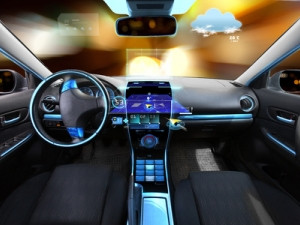
South African consumers are more likely to desire advanced automation technology when choosing cars, compared to consumers in the UK, Germany, China, Mexico and South Korea.
This is according to Deloitte's Global Automotive Consumer Study. The research is fielded using an online panel methodology where consumers are invited to complete the questionnaire via e-mail through Deloitte's global panel partner. This module, which focused on future vehicle technologies, was fielded in 17 countries. The total sample of survey respondents was 22 078 consumers (16 years old and up) with 1 254 from SA.
Although the desirability of the technology is high in SA, Deloitte says the willingness to pay has decreased over the past two years.
As a developing economy, SA is beginning to see the art of the possible. South African consumers are beginning to ask: 'Why not us? They are now expecting some of these technologies to come as a standard," says Karthi Pillay, Africa automotive leader at Deloitte.
Increasing connectivity
He explains that because of the increasing connectedness of South Africans, consumers are always in touch with the latest technologies around the globe.
Thus, Pillay urges local car manufacturers and dealers to change their approach when dealing with SA's tech-savvy consumers if they are to profit from the growing advanced automation technology market.
"When we look at the future of mobility, the younger generation is much more likely to show an interest in fully self-driving vehicles, and they are also more willing to pay for in-vehicle technologies when compared to older generations. When compared to the UK and Germany, we're also seeing a higher proportion of consumers in South Africa who are willing to pay for advanced vehicle technologies, with safety remaining their biggest concern," Pillay notes.
According to Deloitte, basic automation allows the driver to be in complete control with the vehicle performing specific automated tasks, while advanced automation combines at least two functions such as adaptive cruise control and lane centring technology.
The firm explains that limited self-driving allows the vehicle to take over all driving functions under certain traffic and environmental conditions, compared to full self-driving where the vehicle takes over all driving functions for an entire trip.
Almost seven in 10 consumers consider travelling in self-driving cars to be a positive experience and are willing to try them, if they show an established safety record, the study notes. When asked about connected cars, 83% of consumers fear data hacking, which could compromise their personal safety, but 79% would share personal information with car makers in return for significant benefits.
"However, South Africans are divided on who they trust the most to bring self-driving technology to market, with half of consumers preferring tech companies and the other half choosing traditional car manufacturers. This is an interesting finding as a new ecosystem takes shape," says Adheesh Ori, chief of staff for Deloitte Africa Automotive.
Ride-sharing
Deloitte notes ride-sharing does not yet threaten SA's culture of car ownership, with only 21% of consumers using ride-sharing services at least once a week, and 42% saying they never use such services.
In this study, ride-sharing was defined as a car-sharing service where consumers hire a car or driver over the phone or using an app. Deloitte says more than a third of the younger consumers who use ride-sharing services question their need to own a vehicle in the future.
In SA, 73% and 74% of consumers want basic and advanced automation technology, respectively, compared to other markets. However, consumers in China, Mexico and South Korea are more likely to want limited or full self-driving vehicles.
Only 47% of South African consumers want limited self-driving technology, and just 39% are interested in full self-driving. Over the past two years, the desirability of advanced automation has increased from 67% to 74%, while desirability of other automation levels has remained stagnant.
Although the desire for advanced vehicle technologies has increased, fewer people are willing to pay, compared to 2014 levels, says Deloitte. In 2014, local consumers were willing to pay an additional R19 149 for these features on average, but in 2016, they would pay only R18 370, it adds.
"Just as in developed economies, South Africans are starting to expect some of these features to come as standard when purchasing a vehicle," says Ori. "Only when they derive significant additional benefit are they prepared to pay extra."
South African consumers are most interested in safety and cyber security features, while convenience and service-enabling technologies resonated the least with consumers.
Share